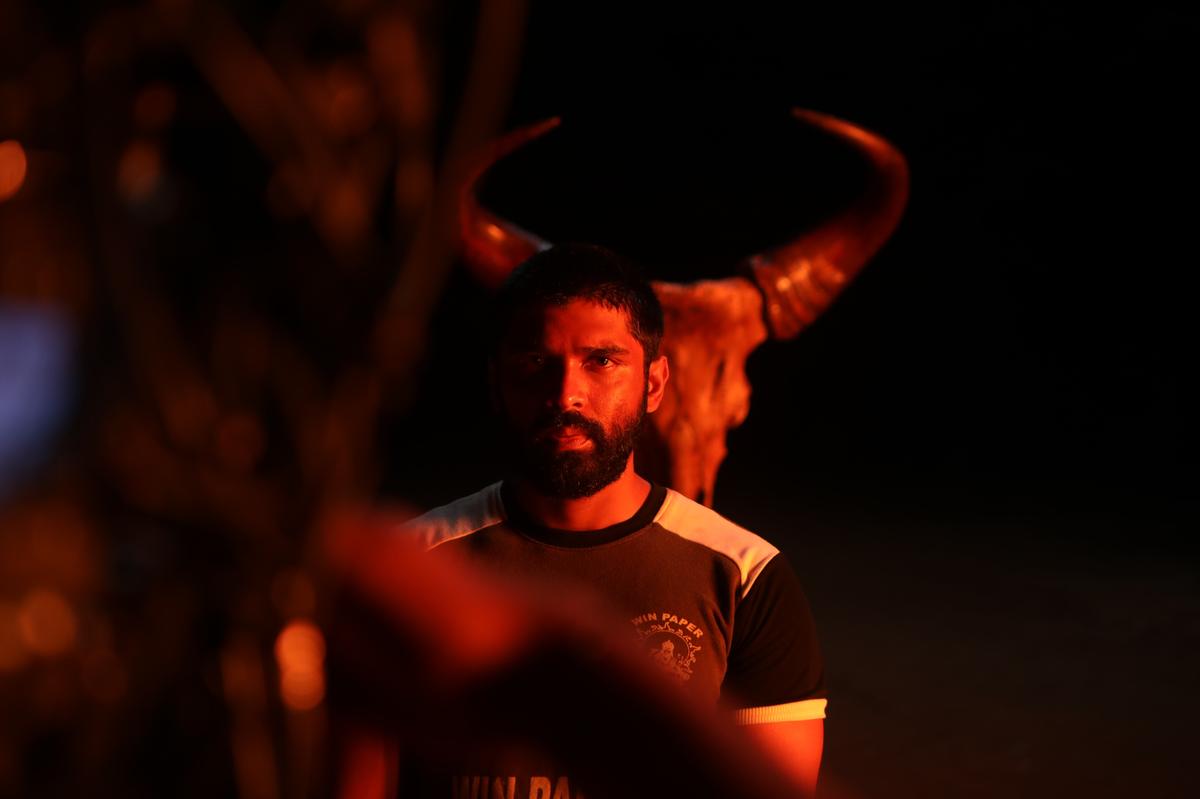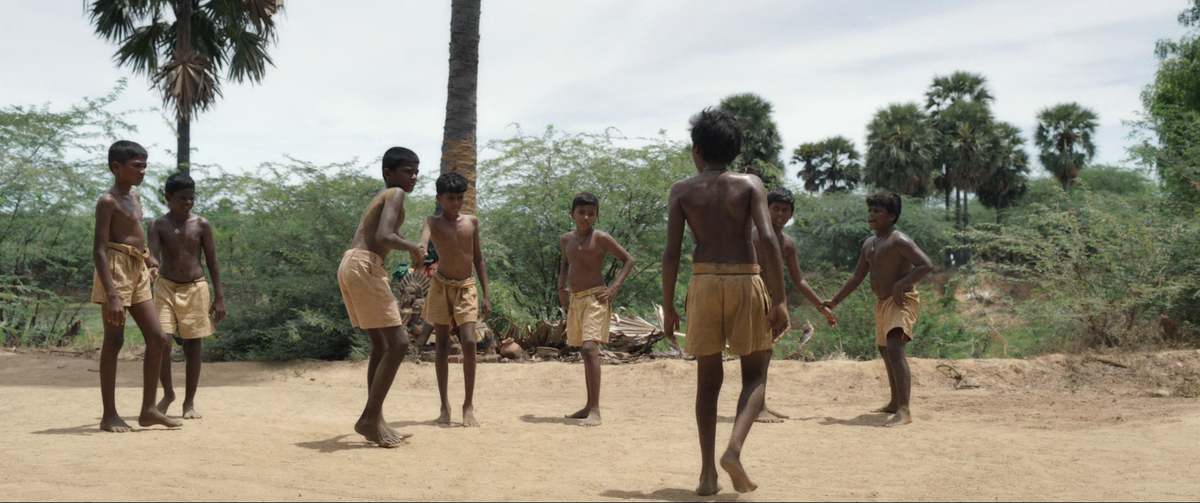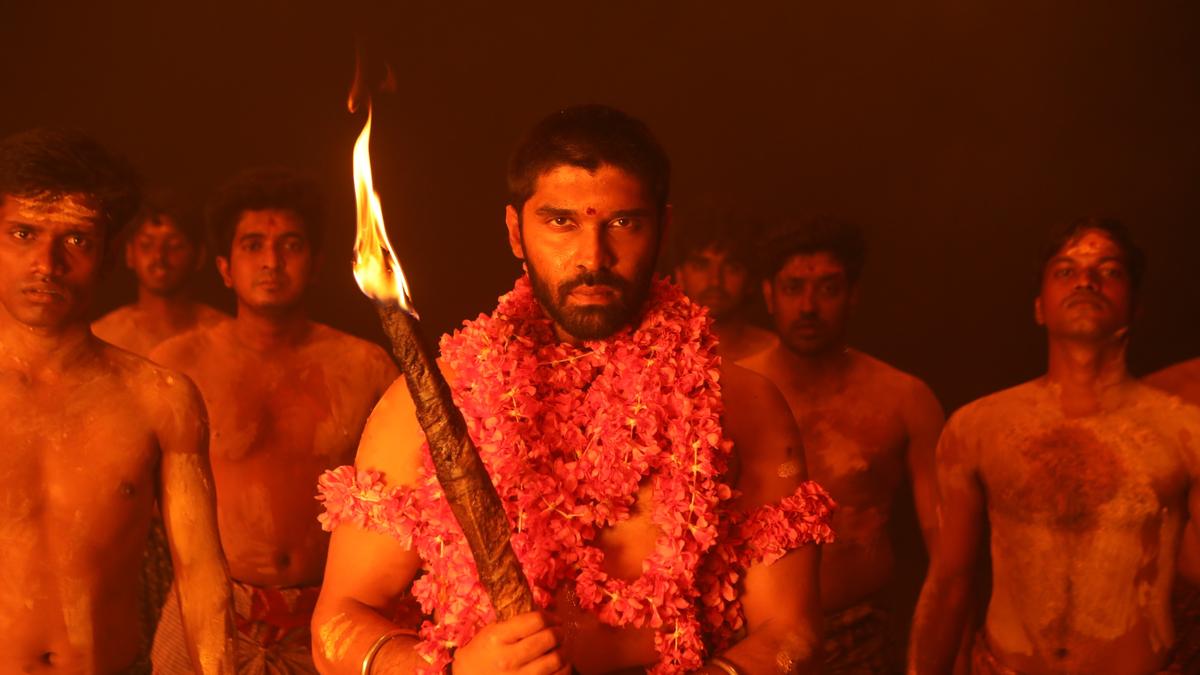“I have to constantly leap over the many fences they keep placing in my path, and I don’t know how far I should run to reach a place without any fences,” says Kittaan, the young protagonist of Bison Kaalamaadan. Tired of the many communalist obstacles that keep him from his dream to become a national Kabaddi champion, Kittaan runs, and runs and runs some more, through many stretches of the film, almost self-immolating his mind, body and soul. Later, when the aforementioned dialogue recurs, a different character utters it to call attention to the struggles that many boys like Kittaan face, but the word ‘far’ is replaced by ‘high’ — because for many like Kittaan, freedom from social shackles comes not by running afar or running away but only by tearing through the roofs of oppression. This dialogue perfectly encapsulates what master filmmaker Mari Selvaraj discusses in his fifth film, Bison Kaalamaadan. It’s a politically sharp and tonally strong drama that is also his most commercially conventional work yet.
Following up on his masterpiece Vaazhai, Mari creates a vicious world where hatred is sown so deep in the hearts that even a casual brush between two unassuming people can spark a violent upheaval — he showcases this unflinchingly in a nightmarish scene where a man commits a blood-curdling act of sacrilege aboard a town bus. This is one of the many excellently written scenes in Bison, as it tells you so much about why Kittaan’s (Dhruv Vikram) father (Pasupathy) advises him against his Kabaddi dreams in a land like theirs. But it also subtly says something about how even a sacred custom can develop morbid meanings. Which fascinatingly, also applies to the violence we find lurking behind Kittaan’s eyes, and the violence propagated by two caste groups — Pandiarajan (Ameer Sultan) and Kandasamy (Lal) — with a long-standing feud between them. The violence, from these divisive groups, is fuelled by hatred, while for Kittaan, it becomes a means to survive and a right to defend himself.


Dhruv Vikram in a still from ‘Bison Kaalamaadan’
| Photo Credit:
Special Arrangement
Inspired by the story of Indian Kabaddi champion and Arjuna-awardee Manathi Ganesan, Bison tells the tale of the innumerable perils that fall upon a young boy who dared to look beyond what was deemed his ‘worth.’ There are concentric layers of battles to be won, the first of which begins at home, as he needs to convince his ever-protective father to let him play (there’s a parallel to be drawn to Sarpatta Parambarai, where another violent sport is played for social freedom; where again, Pasupathy’s character initially hesitates to let the hero participate). Kittaan’s school teacher (a refreshingly positive Madankumar Dakshinamoorthy) gets all the applause in the crowd for how he convinces the father to let his son fly.
Kittaan then has to take on the problem on his street: his father’s feud with a relative is creating new conflicts. This is tricky, since the latter’s sister Rani (Anupama Parameswaran needed more space make a mark) bears feelings for Kittaan (it boldly breaks the notion that it’s taboo for a young man and an older woman to fall in love). Beyond that, Kittaan has to bear the weight of the hatred deep-rooted in his town, and then of the bias for the state he represents in the Indian team, and so on.
But make no mistake, Mari’s narrative doesn’t follow that sequence. In fact, the film begins non-linearly to show Kittaan, now a player in the national team, sidelined from playing a key match against arch-rivals Pakistan, where Mari makes a point about the futility of all enmity, including India-Pakistan, at the Asian Games in Japan, 1994.
‘Bison Kaalamaadan’ (Tamil)
Director: Mari Selvaraj
Cast: Dhruv Vikram, Pasupathy, Lal, Ameer Sultan, Rajisha Vijayan and Anupama Parameswaran
Runtime: 168 minutes
Storyline: With the social reality of his times throwing one obstacle after another, a young boy perseveres to become a national Kabaddi champion
In yet another showcase of fluency in his storytelling language, Mari also gradually finds the rhythm to imbue his visual form with the surreal ideas in text, like imageries depicting the local deity Kaalamaadan and a sacred goat, or how a shot of two marsh fish in a cage is intercut with Kittaan and Rani lying entwined in a swamp. Very few modern Tamil filmmakers celebrate the natural state of their worlds so earnestly, and the many breathtaking montages and drone shots throughout the film earn praise of their own. But interestingly enough, Bison also beats Karnan as Mari’s most mainstream film. We even get an elaborate gangster drama arc, featuring the two caste leaders in a war for power, and the filmmaker does shock you with how unrestrained he is in showing the macabre unleashed.
In some instances, the picture gets a tad too unsettling as knives plunge through bodies and pieces of flesh lie scattered on the floor in a pool of blood. But Mari’s cinematic violence only speaks of the futility of it all, and the message comes through loud and clear. Both Lal and Ameer’s gangster characters become so central to Kittaan’s journey; they are two sides of the same coin, stuck with their necks too deep in the rot, and that you begin to even empathise with them only makes it harder when you see them tear each other apart. What Lal shows through a noble act, Ameer says outright — that what started as a fight for equality has turned into a vengeance-fuelled thirst for power.
This is Mari making a profound political statement; while he slaps a question on the terrorising faces of the oppressors, he asks even those from the oppressed sects to introspect whether the fight is still about equality or for domination. The dialogues in Bison have a rousing effect — be it a line that shuns naysayers of caste-based reservation or how, while the rest of the world cares and prides itself in its fight against one or two opponents, Kittaan has had to fight everyone around, as well as all the weight forced upon his shoulders. When he helplessly utters how he could have prepared himself for the hatred that was sown generations before he was even born, Dhruv’s Kittaan voices what goes in the minds of many voiceless men and women in our casteism-ridden society.

A still from ‘Bison Kaalamaadan’
| Photo Credit:
Neelam Productions
In his first original story as a hero, Dhruv Vikram impresses as Kittaan. It’s a performance that requires him to hide an ember behind his eyes, and the actor moulds steel to become an angry young man that angry young men can look up to. In moments when he gets to unleash some of that fire in his belly, the crowd is bound to erupt. Dhruv’s trained moves and brawny physique leave no room for doubt in essaying a professional Kabaddi player, and Mari too ensures that this is a sports drama at the end of it all. Kabaddi isn’t a sport that easily lends itself to a gratifying depiction in cinema since there aren’t many slow-motion-worthy moves palatable to the mass audiences. And yet, the choreography makes the games feel so real and present, and the writing ensures that every raid in the matches is nail-biting. It’s not every Friday that multiple genres blend this seamlessly, and Bison fuses elements of a sports drama, a biopic, a social actioner, and a gangster saga into a singular experience.
At the end of the film, when a climactic shot spectacularly ties back to the Kaalamaadan deity, you are bound to be overcome with emotion. There are very few filmmaking voices that make you stand up and applaud for posing such artistic prowess and conviction, and Mari is inarguably the most original of modern Tamil greats. “When have they ever written our names so easily?” wonders a character in Bison. His fifth directorial is another proof that Mari Selvaraj has long immortalised his name as a rare game-changer.
Bison Kaalamaadan is currently running in theatres
Published – October 17, 2025 01:25 pm IST



